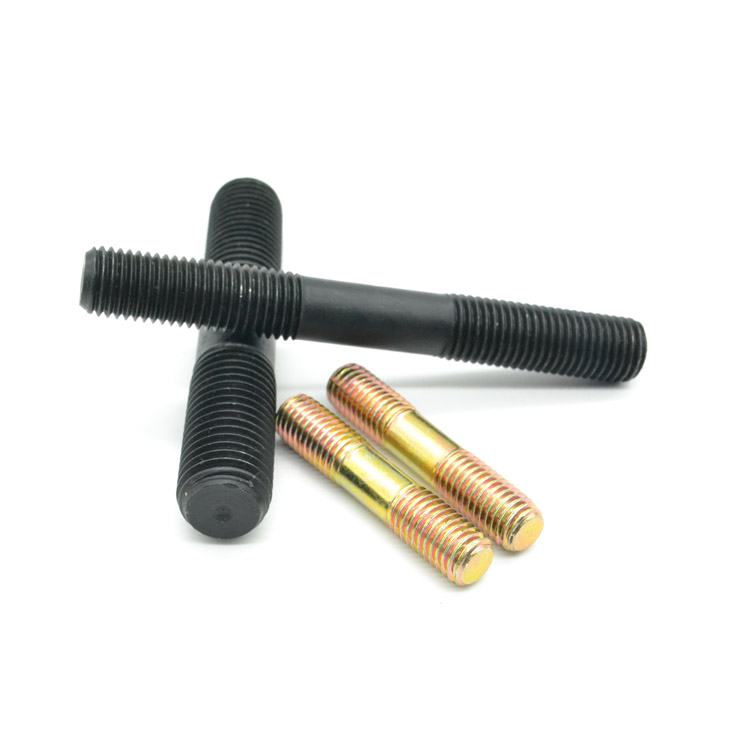radiator screws factories
វិច្ឆិកា . 22, 2024 05:21 Back to list
radiator screws factories
The Importance of Quality in Radiator Screw Manufacturing
In the automotive and HVAC industries, the components that make up a system are critical to its overall performance. Among these components, radiator screws play a significant role, often overlooked but essential for the durability and functionality of radiators. Radiator screws secure vital parts, ensuring that fluids flow efficiently and that the entire system operates effectively. Thus, the manufacturing of radiator screws is a key process that demands precision and high-quality standards.
Understanding Radiator Screw Manufacturing
Radiator screws, typically made from materials like stainless steel or brass, must withstand high temperatures and pressures. The manufacturing process involves several stages, including material selection, machining, surface treatment, and quality control. Factories that produce these screws must adhere to stringent specifications to ensure that they meet industry standards.
One of the primary considerations in the production of radiator screws is the choice of materials. The selected material must not only be durable but also resistant to corrosion, which is crucial in environments exposed to heat and moisture. In many factories, advanced techniques like cold heading and CNC machining are utilized to enhance the precision and strength of screws, ensuring that they fit perfectly into radiators.
Quality Control Standards
radiator screws factories

Quality control is paramount in the production of radiator screws. Factories implement rigorous testing protocols throughout the manufacturing process. This includes inspection of raw materials, in-process checks, and final product evaluation. Sophisticated testing equipment is used to assess tensile strength, corrosion resistance, and dimensional accuracy. By maintaining high-quality standards, manufacturers not only comply with industry regulations but also build trust with their customers.
Moreover, the global market demands ever-increasing quality from suppliers. As vehicles evolve and become more sophisticated, the necessity for reliable components grows. This trend propels radiator screw factories to invest in research and development to innovate new materials and processes that enhance performance.
Sustainability in Manufacturing
In recent years, sustainable manufacturing practices have gained importance within the industry. Many radiator screw factories are adopting eco-friendly practices, such as reducing waste and utilizing recycled materials. By integrating sustainable methods, manufacturers not only contribute to environmental preservation but also respond to the growing consumer demand for responsible production. This shift is essential for businesses aiming to remain competitive in a market that prioritizes sustainability.
Conclusion
In summary, radiator screw factories play a vital role in the efficiency and reliability of automotive and HVAC systems. By focusing on quality control, advanced manufacturing techniques, and sustainable practices, these factories ensure that the screws they produce meet the highest standards. As the demand for reliable and efficient components continues to rise, the role of radiator screw factories becomes increasingly significant in the quest to produce durable, high-performance systems that can withstand the challenges of modern engineering. The commitment to quality, innovation, and sustainability will ultimately shape the future of manufacturing in this essential sector.
Latest news
-
Wire Bolts Suppliers: Durable & Reliable Fasteners for Every Project
NewsAug.25,2025
-
Premium Cabinet Bolts Supplier | Wholesale & Custom Solutions
NewsAug.24,2025
-
Reliable Axle Nuts Supplier | Quality & Precision Fasteners
NewsAug.23,2025
-
Durable Bolts for Lawn Mower Handle - Top Supplier & Manufacturer
NewsAug.22,2025
-
High-Quality Bolts for Lawn Mower Handle Supplier & Manufacturer
NewsAug.21,2025
-
Reliable Axle Nuts Supplier | High-Quality Automotive Parts
NewsAug.19,2025
